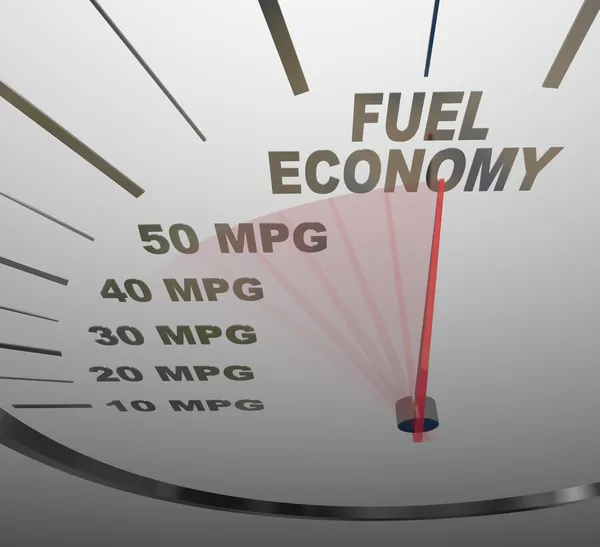Can I Use 5W30 Instead of 5W20 in My Ford: COMPLETE GUIDE 2024!
Maintaining the smooth operation of your Ford engine depends on selecting the proper oil. People often ask if it’s okay to use 5W30 instead of 5W20. While both oils protect your engine, they have different thicknesses, which can affect performance. In this introduction, we’ll explain the key differences and help you understand when switching might be suitable and when it’s best to stick with what your Ford recommends.
Yes, you can use 5W30 instead of 5W20 in your Ford, but it’s important to follow Ford’s recommendations. 5W30 is thicker and may affect fuel efficiency. Always check your vehicle manual or consult a mechanic before switching.
We’ll talk about “Can I Use 5W30 Instead of 5W20 in My Ford” in this article.
Table of Contents
What Do 5W20 and 5W30 Mean?
The Breakdown of Viscosity Grades:
Viscosity grades, like 5W20 or 5W30, show how thick or thin motor oil is at different temperatures. The oil’s behavior in cold weather is shown by the first number, while its flow at standard engine temperatures is indicated by the second.
How These Grades Affect Your Engine:
Viscosity grades affect how well motor oil flows in your engine. Thicker oils, like 5W30, provide better protection in hot conditions, while thinner oils, like 5W20, offer better fuel efficiency and cold start performance.
Ford’s Recommendation for Oil Types

Why Ford Recommends 5W20 for Most Vehicles:
Ford recommends 5W20 for most vehicles because it provides the right balance of engine protection, fuel efficiency, and performance. It flows well in cold weather, reduces engine wear, and meets the specific requirements of Ford’s engines.
Manufacturer Specifications and the Importance of Following Them:
Following manufacturer specifications is important because they ensure your engine gets the right oil for optimal performance. Using the recommended oil helps prevent engine damage, maintains fuel efficiency, and keeps your vehicle’s warranty valid, ensuring long-term reliability.
Differences Between 5W20 and 5W30 Oil
Viscosity and Its Impact on Engine Performance:
Viscosity affects how well motor oil flows in your engine. Thicker oils, like 5W30, protect better in hot conditions, reducing wear in high temperatures. Thinner oils, like 5W20, improve fuel efficiency and perform better in cold weather, providing smoother engine starts and quicker lubrication.
Performance in Hot and Cold Temperatures:
Oil performance varies with temperature. In hot weather, thicker oils like 5W30 protect better against wear. In cold conditions, thinner oils like 5W20 flow easily, ensuring quick lubrication and smoother starts, helping your engine run efficiently in different climates.
The Pros and Cons of Using 5W30 Instead of 5W20
Benefits of Using 5W30:
Using 5W30 can provide better protection for your engine in high temperatures, reduce wear, and improve overall performance. It may also help extend engine life, especially in older vehicles.
Potential Risks of Switching from 5W20 to 5W30:
Switching from 5W20 to 5W30 may lead to reduced fuel efficiency and possible engine strain in colder temperatures. It can also impact engine performance, especially in vehicles designed specifically for 5W20, risking potential damage over time.
How 5W30 Affects Engine Wear and Tear
Engine Longevity and Protection:
Using the right oil, like 5W20 or 5W30, helps keep your engine running smoothly and extends its life. Proper lubrication reduces wear and tear, protects against damage, and ensures your vehicle stays reliable for years to come.
Fuel Efficiency Considerations:

Reducing pollution and saving money both depend on fuel efficiency. Using the right oil can help. Thinner oils like 5W20 flow better in cold weather, improving fuel efficiency. In contrast, thicker oils like 5W30 may decrease fuel economy but offer better protection in hot conditions.
What Happens If You Use the Wrong Oil?
Short-Term Effects:
Using the wrong oil can cause short-term problems like poor engine performance, decreased fuel efficiency, and increased wear. These issues may lead to overheating or rough engine operation, affecting your driving experience and possibly resulting in costly repairs.
Long-Term Damage and Warranty Issues:
Long-term damage to a vehicle can happen from regular wear or lack of maintenance. This may affect your warranty if the damage was avoidable. It’s important to follow the manufacturer’s guidelines to keep your warranty valid and prevent costly repairs in the future.
When Might It Be Okay to Use 5W30 Instead of 5W20?
Extreme Weather Conditions:
Extreme weather conditions, like heavy rain, snow, or intense heat, can harm your vehicle. These conditions may cause problems with the engine, tires, and battery. Regular checks and proper care can help protect your car during harsh weather.
High Mileage and Older Engines:
High mileage and older engines may experience wear over time, leading to issues like reduced performance or oil leaks. Regular maintenance helps keep the engine running smoothly and can extend its life.
Understanding Ford’s Oil Monitoring System

How Modern Cars Monitor Oil Quality:
Modern cars have sensors that monitor oil quality by checking its condition, temperature, and level. These sensors alert drivers when the oil needs changing, helping maintain engine health and ensuring the car runs efficiently with proper oil care.
How to Know When It’s Time for an Oil Change:
You’ll know it’s time for an oil change if your dashboard shows the oil warning light, the oil looks dark or dirty, or the engine sounds louder than usual. Follow the manufacturer’s recommendation on how often to change the oil for best performance.
Can Using the Wrong Oil Void Your Warranty?

Warranty Implications of Switching Oil Types:
Switching oil types can affect your car’s warranty if it doesn’t meet the manufacturer’s requirements. Always use the recommended oil type to avoid problems and keep your warranty valid, ensuring the best protection for your engine.
How to Protect Your Vehicle’s Warranty:
Use the suggested components and fluids, adhere to the manufacturer’s maintenance schedule, and maintain records of any services performed to preserve your car’s warranty. Avoid unauthorized modifications, as they could void your warranty and cause future repair issues. Follow the instructions to ensure complete coverage.
Ford Models That Typically Use 5W20
Common Ford Cars and Trucks Requiring 5W20
Common Ford vehicles that require 5W20 oil include models like the Ford F-150, Ford Escape, and Ford Fusion. Always check your owner’s manual to confirm the correct oil type for your specific model.
Oil Additives: Do They Make a Difference?
What Are Oil Additives?
Oil additives are chemicals mixed with engine oil to improve its performance. They help reduce wear, prevent rust, clean engine parts, and keep the oil stable at different temperatures.These additives prolong the engine’s lifespan and improve its performance.
How They Interact with Different Oil Grades:
Oil additives work with different oil grades to improve performance. For example, in thicker oils, they can enhance flow in cold weather, while in thinner oils, they provide extra protection. Choosing the right grade ensures additives work effectively for your engine.
How to Safely Switch Between Oil Types
Tips for Making a Smooth Transition:
To make a smooth transition when changing oil types or grades, first check the manufacturer’s recommendations. Gradually mix the new oil with the old one, and ensure proper maintenance to avoid any issues.After the modification, keep a regular eye on performance and oil levels.
When to Consult a Mechanic:
Consult a mechanic if you notice unusual noises, warning lights, or poor performance in your vehicle. If you’re unsure about oil changes or other maintenance tasks, getting professional advice ensures your car runs smoothly and prevents further issues. Regular check-ups also help keep your vehicle in good condition.
Transition Process

Draining the old oil:
Warm up the engine a little before emptying the old oil to thin it out.Turn off the engine, lift the vehicle safely, and remove the drain plug under the engine. Allow the old oil to flow out completely before replacing the plug.
Choosing the correct new oil type:
To choose the correct new oil type, check your vehicle’s manual for the recommended oil specifications, such as viscosity and grade. Make sure the new oil meets these requirements and is suitable for your driving conditions. This maintains the efficiency and smooth operation of your engine.
Refilling and monitoring oil levels:
Checking and topping up oil levels is essential for keeping engines running smoothly. Regularly inspect oil levels and add more if needed to avoid engine problems and ensure good performance. It helps maintain your vehicle’s health and efficiency.
FAQS
Can I Mix 5W20 and 5W30 Oil?
Mixing 5W20 and 5W30 oils is generally safe for short-term use. However, it’s best to use one type as specified in your owner’s manual for optimal engine performance and protection.
How Often Should I Change My Oil?
Change your oil every 3,000 to 5,000 miles, or as recommended in your owner’s manual. Regular changes keep your engine running smoothly and efficiently.
Is Synthetic Oil Better for My Ford?
Synthetic oil is often better for your Ford because it lasts longer, protects the engine better, and performs well in extreme temperatures compared to regular oil.
Conclusion
Choosing the right oil for your Ford is crucial for engine health. While 5W30 can be used instead of 5W20, it may affect fuel efficiency and performance. Always check your vehicle’s manual or consult a mechanic before making a change. It’s important to follow the manufacturer’s recommended oil change schedule to preserve engine performance, safeguard your car, and keep your warranty intact. An engine that operates properly requires routine maintenance.







One Comment